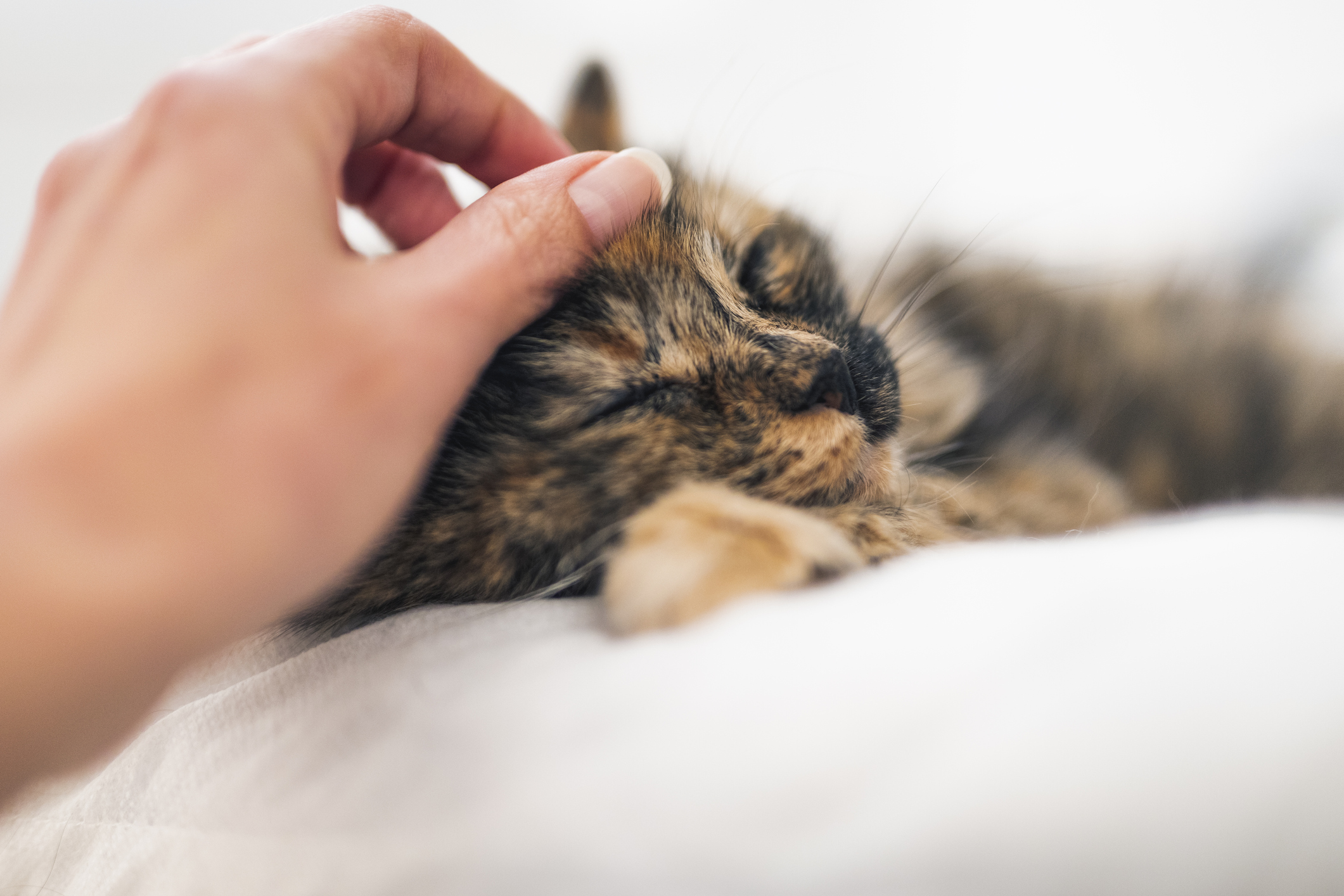
This Breathing Issue Can Be Life-Threatening for Cats
Although cats do not get common colds like humans, they can suffer from upper respiratory illnesses that, when left untreated, can progress and lead to feline pneumonia. While pneumonia in cats is relatively rare, the consequences of inaction could be grievous.
If your cat develops pneumonia and does not receive medical attention right away, the infection could become fatal, particularly in young kittens, senior cats and cats with weakened immune systems. Early and aggressive action, however, could help save your cat’s life.
Identifying the three types of feline pneumonia
Feline pneumonia can begin from bacterial and fungal infections, as well as particle aspiration. Because feline pneumonia can stem from a number of different causes, it is important to familiarize yourself with the symptoms, so you can monitor your cat’s condition and seek veterinary attention at the first sign of trouble. Common symptoms that can present themselves in all three types of feline pneumonia include:
- Difficulty breathing
- Loss of appetite
- Lethargy
- Dehydration
- Coughing
- Fever
- Weight loss
Bacterial pneumonia
If your pet has been having noticeable difficulties breathing, punctuated by wheezing or crackling sounds, bacterial cells and fluid may have begun building up in their lungs, airways or alveoli. Bacterial pneumonia in cats can most commonly be traced back to the organisms found in bordetella, bronchiseptica, pasteurella and moraxella bacteria. Fortunately, this condition can be completely cured when diagnosed early enough.
After your veterinarian recovers culture samples to determine the specific bacterial type, antimicrobial therapy will be used to treat the illness. As your cat recovers, it is important that they do not lie in one position for too long, as this can encourage fluid buildup on one side of the lungs. Make sure your cat is getting enough rest and supplement their diet with vitamin C and N-acetylcysteine, which helps with mucus breakdown.
Fungal pneumonia
When your cat comes into contact with fungi, either from their surrounding environment or another pet, an infection can begin forming in the lungs. If this happens, fungal pneumonia can develop and create inflammation in your cat's interstitial tissues, lymphatic vessels and peribronchial tissue. Blastomyces, histoplasma and aspergillus are the most common forms of fungi that cause fungal pneumonia. These are often encountered in feces or soil that is particularly rich in organic matter.
To be certain what type of fungus your cat has been exposed to, the vet will collect a fluid sample and may run a urinalysis, chest and lung X-rays or an abdominal ultrasound to determine the best treatment plan. If your cat has exhibited difficulty breathing, has stopped eating regularly or has irritated skin, getting them to the vet immediately will be imperative, as the prognosis for a kitty diagnosed with fungal pneumonia can be bleak.
Aspiration pneumonia
If your cat inhales foreign particles into their lungs from food, vomit or anything that has been regurgitated, their lungs may become inflamed or infected. This lung inflammation could eventually lead to aspiration pneumonia. Symptoms of aspiration pneumonia include difficulty breathing or swallowing, an increase in heart rate and excessive vomiting or regurgitation.
The best course of treatment will depend on the severity of the pneumonia, which will be based on the type of foreign body that was inhaled and its distribution within the lungs. X-rays, a complete cell count and chemistry profile will be taken, and the vet may administer oxygen to relive respiratory distress. When your kitty returns home, lots of rest in a quiet, stress-free environment will be needed during recovery.
Aspiration pneumonia is a life-threatening condition. Even when receiving intensive care, your cat’s prognosis may still be poor. That makes it all the more vital that your cat is taken to the vet the moment you suspect aspiration so that the airway can be suctioned and cleared right away.

Focus on preventative care
With the exception of bacterial pneumonia, once your cat has been diagnosed, it may be difficult for them to make a full recovery. This magnifies the importance of preventative care and early detection. Getting your kitty to the vet for immediate treatment of an upper respiratory illness may improve their prognosis and could even help to prevent the onset of pneumonia altogether. However, this can only be done if you are in tune with your cat’s health.
To minimize your cat’s exposure to potential infections, make sure they are current with all of their vaccinations and limit the amount of time they spend outdoors. Doing your part to help keep your cat healthy with routine preventive care and constant monitoring will lead to a safer future that you and favorite feline friend can share together.


